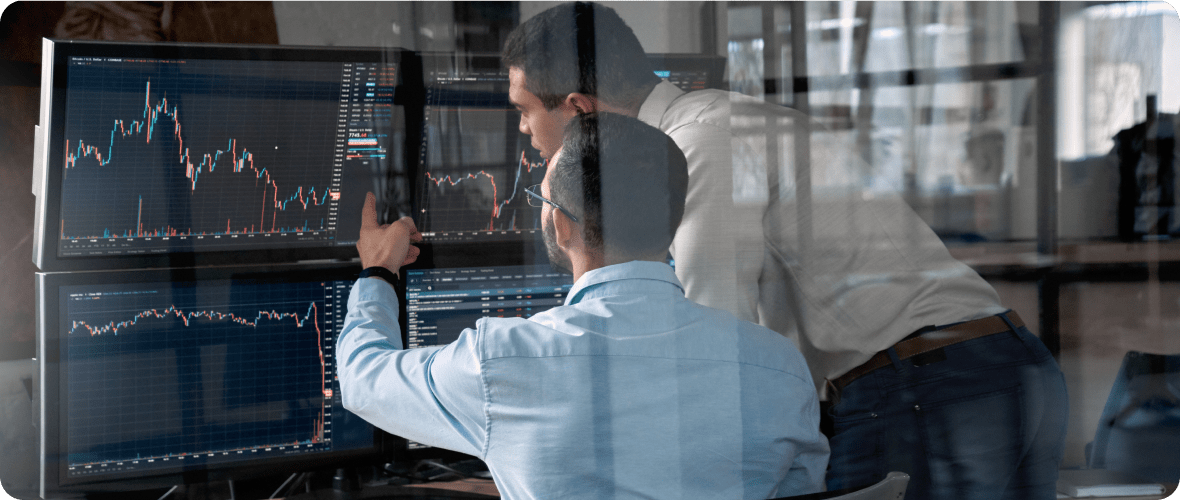What is a Forex Broker?
After the 1970s, when the United States dropped the Bretton Woods agreement regarding the USD convertibility in gold, the foreign exchange market grew dramatically. First available only to institutional players due to the high transaction costs and difficulty to access, it all changed when the Internet and online trading appeared. Forex brokers made it possible for the retail trader to join the largest financial market in the world – foreign exchange.
A Forex broker, therefore, is nothing but an intermediary link between the trader and the market. It offers market quotes via its various liquidity providers, and its trading platform reflects the best possible conditions it has to offer to its customers. For this, it charges a fee or a commission, and its interests align with those of the trader.
Types of Forex Brokers
A Forex trading broker is organized as either a dealing desk (also called market makers) or a non-dealing desk.
Dealing desk
The Forex broker literally creates a market by mirroring the quotation from the interbank market and deals the prices to its clients.
Non-dealing desk
The Foreign exchange broker routes its clients orders to the liquidity provider, and from the
liquidity pool the best quote is offered to its retail clients.
Brokers organized like non-dealing houses often offer ECN (Electronic Communication
Network) or STP (Straight-Through Protocol) execution.
Note:
Different types of brokers exist, as many of them mix dealing with non-dealing conditions, becoming a hybrid Forex broker in the end.

Depending on the type of the brokerage house, different account types exist. ECN accounts, STP accounts,
fixed spreads, variable spreads, etc, are just a few examples.
But the most impressive thing about the current Forex brokers is that they ceased to be just a
Forex brokerage house. Nowadays, the Forex brokerage accounts give access not only to the currency
market, but also to various other financial markets around the world (e.g. commodities – oil, gold,
silver; indices – Dow Jones, S&P500; various other CFDs).
More importantly, traders have access to all these markets from the same trading account. As a result, traders benefit from further diversification options for their positions and more trading opportunities.
How to Start Trading with a Forex Broker
Select your country of residence
Select your country of residence to get started.
Complete the online application
You will then be directed to our secure server to complete the online application.
Login and start trading
Upon completing the application you will be provided a username and password. Log in to the Client Portal, deposit funds and start trading.
How Forex Brokers Make Money
The financial instruments offered by the Forex broker (e.g., currency pairs, commodities,
cryptocurrencies, indices, etc.), form the Forex dashboard. Each instrument has two prices – the bid and
ask price.
The difference between the two prices is called the spread, and it represents one of the ways the
Forex broker makes money. It is a fee charged for providing access to the market, and it can either be
fixed or variable, depending on the type of the trading account.
A Forex broker having access to multiple liquidity providers can offer better spreads to its
clients, whereas a Foreign exchange broker with a single liquidity provider will have wider spreads.
Traders can only use the ask price when buying and the bid price when selling. Thus, by opening and
closing a position, they pay the spread charged by the Forex broker as a fee.
For example:
ECN and STP accounts have variable spreads, because the two accounts reflect the actual market
conditions. Out there in the interbank market the conditions differ throughout the trading day, from
moments with little or no activity to moments of very high market volatility. As such, the spreads
differ too.
For example:
During an important economic release like the Non-Farm Payrolls (NFP) in the United States,
spreads widen on a variable spreads account, and tighten with the decrease in volatility.

Depending on the type of trading account, commissions also exist. In some cases, there’s a commission for each trade, directly related to the volume traded – the higher the volume, the bigger the commission. In some other cases, there’s no commission charged to the trading account, but typically that type of an account offers wider spreads.
Some other ways for Forex brokers to make money exist, but these two are the most representative ones – spreads and/or commissions.
Register for an account with FXOpen and gain access to our cutting-edge CFD trading platform.
You can trade multiple instruments – forex, indices, shares, commodities and cryptocurrency*CFDs – all from one account and rest assured we’re fully regulated by the FCA and offer FSCS protection up to £85,000.
Register-trading/register_img.png)
*Cryptocurrency CFDs are only available for trading by those clients categorised as Professional clients under FCA Rules. They are not available for trading by Retail clients.









